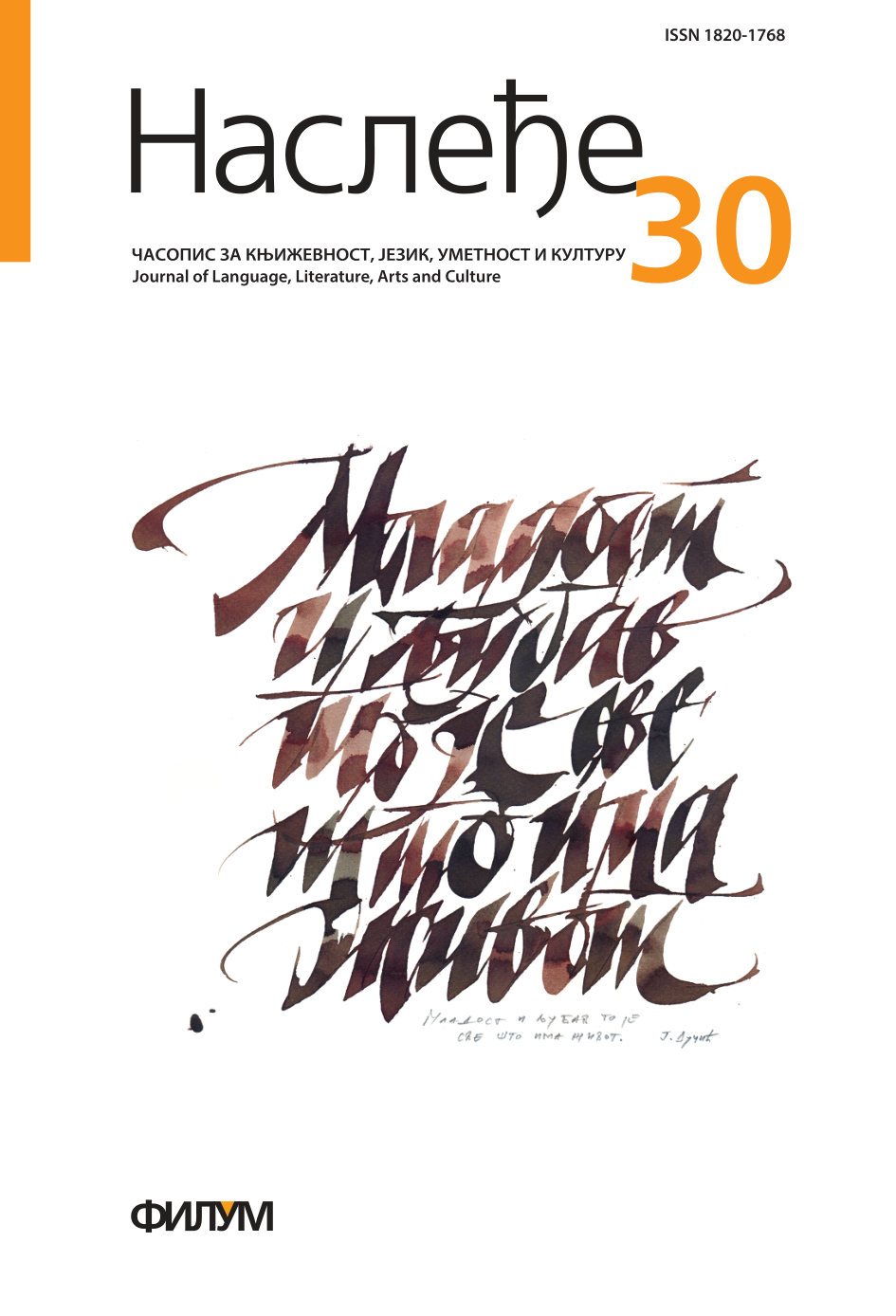TABOOS AND EUPHEMISMS AS AN EXAMPLE OF A COGNITIVE CULTURAL MODEL
DEATH IN THE SERBIAN AND SPANISH LANGUAGES
Keywords:
euphemisms, cognitive cultural model, metaphors, Serbian, Spanish, death tabooAbstract
This paper is based on the concept of cognitive cultural models as a type of knowledge that helps members of any community behave in a socially acceptable manner. The subject of analysis is the concept of death in Serbian and Spanish, as well as the corresponding euphemistic substitutes (metaphors) which are used in both languages instead of death taboo. The aim of this paper is to show that the Serbian and Spanish societies share the same cognitive cultural model and see death as a taboo, which is why both languages contain euphemistic expressions on the subject of death. Collected metaphors are classified into four metaphorical categories: 1) death is a loss, 2) death is the end, 3) death is a journey / death is a departure and 4) death is a dream / death is a rest. We find that the Serbian and Spanish speaking communities use the same euphemistic strategies to avoid direct reference to death (probably out of fear that underlies death as a taboo), which means that the same cognitive cultural model is in effect. It can be concluded that the existence of numerous euphemisms for death is part of the Serbian and Spanish cultures, a result of secularization and modernization of their societies, as well as an outcome of their religious beliefs.
References
Cantera Ortiz de Urbina, Gomis Blanco 2007: J. Cantera Ortiz de Urbina, P. Gomis Blanco, Diccionario de fraseolоgíа española: locuciones, idiotismos, modismos y frases hechas usuales en español, Madrid: Abada Editores.
Otašević 2012: Đ. Otašević, Frazeološki rečnik srpskog jezika, Novi Sad: Prometej.
Real Academia Española. (2001). Diccionario de la lengua española (22.a ed.). <http://lema.rae.es/drae/> [11/03/2014]
Vujanić i dr. 2007: M. Vujanić i dr., Rečnik srpskoga jezika, uredio Miroslav Nikolić, Novi Sad: Matica srpska.
Corpus del español <http://www.corpusdelespanol.org> [12/03/2014]
Real Academia Española: Banco de datos (CORDE) [on-line]. Corpus diacrónico del espal. <http://www.rae.es> [10/03/2014]
Real Academia Española: Banco de datos (CREA) [on-line]. Corpus de referencia del español actual. <http://www.rae.es> [10/03/2014]






